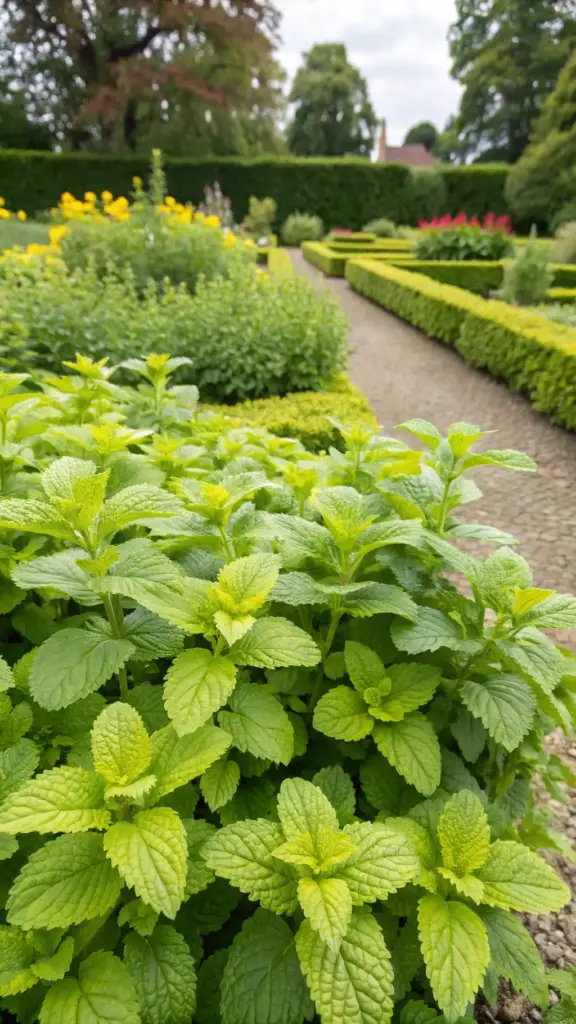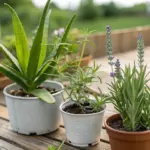6. Lemon Balm: Your Calming Mosquito-Fighting Companion

After discovering lemon balm (Melissa officinalis) in my shade garden, I was amazed by its versatility! Not only does it repel mosquitoes naturally, but it also brings this incredible citrusy calm to any space it inhabits. Let me share what I’ve learned about making the most of this amazing herb.
Urban Garden Growing Success
My foolproof tips for growing lemon balm in city spaces:
- Choose a spot with dappled morning sunlight
- Ensure good air circulation
- Maintain consistent moisture
- Use rich, well-draining soil
- Monitor for spreading
Modern Medicinal Garden Design
Create a stunning wellness corner with these design elements:
- Install raised cedar beds
- Use geometric planters
- Add copper plant markers
- Create defined pathways
- Include meditation seating
My Famous DIY Bug Spray Recipe
Here’s the recipe that went viral on my garden blog:
Ingredients:
- 2 cups fresh lemon balm leaves
- 1 cup witch hazel
- 10 drops lavender essential oil
- 5 drops eucalyptus oil
- 1 cup distilled water
Instructions:
- Bruise fresh leaves gently
- Steep in witch hazel for 48 hours
- Strain and combine with oils
- Add distilled water
- Store in dark glass spray bottles
Stunning Container Combinations
My favorite companion plants for lemon balm:
- Purple Heuchera for color contrast
- Variegated Lamium for ground cover
- Japanese Forest Grass for texture
- Trailing Lobelia for cascading effects
- Silver-leaved Artemisia for contrast
Harvesting and Preservation Guide
Perfect your timing with these tips:
- Harvest leaves before flowering
- Cut stems in early morning
- Never remove more than 1/3 of the plant
- Dry bundles upside down
- Store in airtight containers
Year-Round Benefits
I use my preserved lemon balm for:
- Calming evening tea
- Natural sleep aid
- Aromatherapy sachets
- Homemade cleaning sprays
- Natural air freshener
Ready to add some Mediterranean charm to your shade garden? Click “next” to discover how Rosemary can bring both culinary delight and mosquito-fighting power to your space! Wait until you see my creative ways to train rosemary into stunning topiary shapes – it’s easier than you think! 🌿✨









GIPHY App Key not set. Please check settings